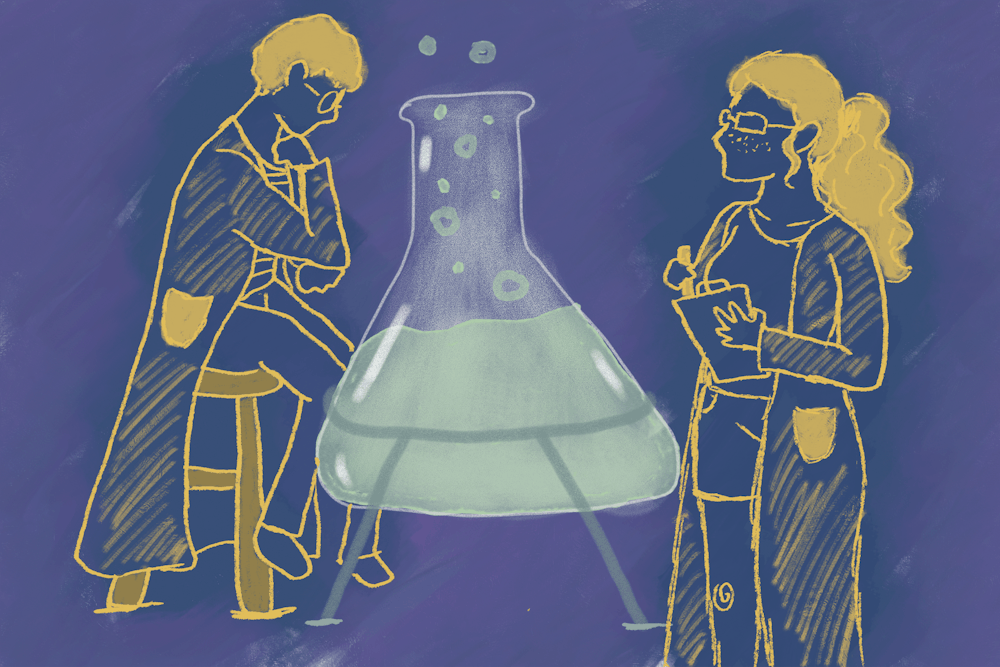If you’re a STEM student and you’re not doing research, you’re leaving half of your education on the table. Studies have found that undergraduates who take part in research often earn higher GPAs, and long-term involvement is linked to improved retention and a greater likelihood of graduating.
Research experience also pays off in the job market, with research and practicum experience significantly increasing the likelihood of STEM employment within a year of graduation. These measurable outcomes alone make undergraduate research a powerful educational opportunity and a smart move for launching your career. But beyond the numbers, it’s a deeply formative experience.
I’ve personally worked on more than six projects during my time at USC, and each one shaped me in ways no classroom assignment ever could. Research isn’t just about pipettes, coding or equations — it’s about developing the skills that make you a professional. It complements coursework because it forces you to apply knowledge, solve problems and make calls where no solution manual exists. Instead of reading the textbook, you’re writing it.
Research teaches you how to manage your tasks when deadlines are real and competing. You juggle classes, lab work and presentations. That balancing act creates exactly what companies want: someone with a lot of irons in the fire who can still deliver. And this is your chance to practice in an environment that won’t fire you when you fail.
It also builds professional skills that separate good workers from great leaders: technical writing, grant applications, conference applications, teamwork across disciplines, and, at higher levels, project leadership. By their fourth year, many undergrads who do research have already managed projects, mentored peers and learned how to keep a team moving.
Showing a company that you’ve secured funding, led a team and delivered results makes you an asset. Employers won’t have to gamble on your potential; they’ll know you can deliver value from day one.
Most importantly, research leaves you with deliverables. When you walk into an interview, you don’t just have classes to talk about. You have concrete examples of what you've accomplished: a poster you presented, a data set you analyzed or a prototype you built. In the industry, “I have a 4.0” will get you some praise, but “I reduced the cost of process X by Y%” will turn heads.
Internships will give you deliverables too, but they rarely offer the same leadership opportunities. Research makes you a force multiplier by developing project management skills that most professionals only gain much later in their careers.
The most common objection I hear from classmates is that research eats up too much time. STEM majors are already overloaded with labs, problem sets and exams. Adding research can feel like too much.

The truth is: research doesn’t waste your time — it teaches you how to use it. Students who do research often improve their GPA because they learn time management under pressure. Even modest involvement, such as five hours a week in a research lab, pays off. And unlike busywork in some courses, research tasks matter. They build skills and experiences that carry into your career.
So yes, research takes time. But it’s not a drain — it’s an investment in your growth and future.
Research is your chance to explore your interests, learn to lead and develop marketable skills in an environment where failure is safe and even encouraged. Undergraduate research is likely the only time in your life when simply being curious and willing to learn is enough to get you the job. You will likely never again have such immense freedom to grow and explore.
If you’re a STEM student, get involved in research. Don’t wait until senior year — start now. Knock on professors’ doors, send cold emails and apply for Research Experiences for Undergraduates.
In undergraduate research, you get what you give. Immerse yourself fully, and you’ll leave college not just with a degree, but with proof you’re ready to lead.A transcript shows you studied; a research portfolio shows you’re ready to make a difference.
If you are interested in commenting on this article, please send a letter to the editor at sagcked@mailbox.sc.edu.

